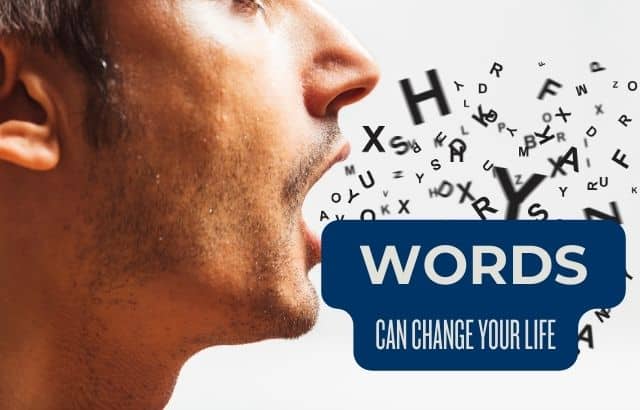Transform Your Language – The power of words is undeniable. They shape our thoughts, influence our emotions, and drive our actions. By consciously changing the way we speak—both to ourselves and to others—we can transform our lives in profound ways. This blog will explore how changing your vocabulary can lead to positive changes, with practical examples, FAQs, and even a few calculations to illustrate the impact of language on our daily lives.
Table of Contents
Transform Your Language – The Power of Language

Language is more than just a means of communication; it’s a tool that can create or destroy. The words we choose to use can uplift us or hold us back. Here are some examples of how altering your language can lead to significant changes in your life:
1. Transforming Self-Talk
- Before: “I can’t do this; I always fail.”
- After: “I am capable, and I learn from my challenges.”
- Impact: Positive self-talk boosts confidence and encourages action.
2. Reframing Challenges
- Before: “This is a problem.”
- After: “This is an opportunity for growth.”
- Impact: Shifting perspective from problem to opportunity can reduce stress and foster creativity.
3. Emphasizing Positivity
- Before: “I have to go to work.”
- After: “I get to go to work.”
- Impact: This change fosters gratitude and enhances your overall outlook on daily tasks.
4. Encouraging Others
- Before: “You should try harder.”
- After: “I believe in your ability to succeed.”
- Impact: Encouraging language boosts motivation and strengthens relationships.
5. Setting Intentions
- Before: “I hope I can lose weight.”
- After: “I am committed to my health journey.”
- Impact: Commitment language creates accountability and determination.
Transform Your Language – FAQs on changing my words answered by Hirav Shah

Q1: Transform Your Language – How does changing my words impact my mental health?
A: Positive language can reduce anxiety and depression by fostering a more optimistic outlook. It can shift your mindset from negativity to empowerment.
Q2: Transform Your Language – Can changing my words really improve my relationships?
A: Absolutely! Positive and encouraging language fosters better communication, builds trust, and strengthens connections with others.
Q3: Transform Your Language – Is it hard to change my vocabulary?
A: It may take time and practice, but with conscious effort, you can develop new habits in your language that can lead to positive changes.
Q4: How can I start changing my words today?
A: Begin by identifying negative phrases you commonly use. Replace them with positive alternatives and practice them daily.
Q5: What if I feel like I’m being inauthentic by using positive language?
A: It’s important to be genuine. Start by acknowledging your feelings, then gradually reframe your language. Authentic positivity can be a powerful motivator for change.
Transform Your Language – Calculating the Impact of Language

To illustrate the potential benefits of changing your words, consider a simple calculation based on daily interactions:
- Daily Negative Self-Talk: If you engage in negative self-talk 10 times a day, that’s 3,650 negative affirmations a year.
- Positive Alternatives: If you replace those with positive affirmations, you’ll have 3,650 positive affirmations instead.
- Impact: Research shows that positive affirmations can increase self-esteem and motivation. Imagine the cumulative effect over years!
Example Calculation:
Let’s say a shift in mindset leads to a 20% increase in productivity due to enhanced motivation. If you typically complete 5 tasks a day, that’s an additional task accomplished daily:
- 1 extra task/day x 5 days/week x 50 weeks/year = 250 additional tasks/year.
This can lead to significant progress in personal and professional goals!
Conclusion
Changing your words can indeed change your life. By consciously choosing language that empowers, uplifts, and inspires, you can reshape your thoughts and actions, fostering a more fulfilling life. Start today by identifying one phrase you can change, and watch how it transforms your mindset and experiences. Remember, every word counts!










